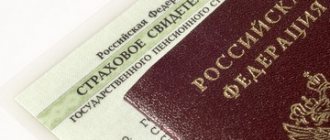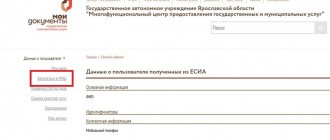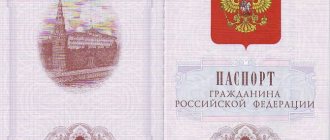On our website you can not only read useful articles on wedding topics, but also see examples of wedding congratulations, as well as order wedding congratulations in the form of poems, songs, rap and other formats.
The fact that the family begins to live under the same last name will not surprise anyone. But the fact that this is the wife’s surname may cause an ambiguous reaction among others. From time immemorial it was customary to give the bride to her husband's family. She went into their family, became part of it, symbolically dying for her family and, as it were, being born again. That is why she took the name of her husband’s clan. Now there is no such need, and taking the husband’s surname is simply a tribute to an ancient tradition. By the way, the statement that in ancient times the wife always took her husband’s surname is incorrect. If the newlywed came from a more noble family, the chosen one could receive her surname. Today, is it possible for a husband to take his wife’s surname? Yes, definitely.
But, given that such an event raises many questions, let's look at the main points:
- Why does a husband take his wife's last name?
- Attitude of others.
- What documents need to be changed?
- How to call your husband's old last name.
Why take your wife's last name?
Is it possible for a husband to take his wife's last name? Certainly. There are no laws that require spouses to bear the family name of their husband. When registering, the bride and groom can either leave their last names, or one can change theirs, or even take a double one. Other options are also possible. But traditionally it is the girls who change their surname. A man’s decision to bear the name of his wife’s clan most often causes confusion among the public.
For what reasons might a man even decide to take his wife’s last name? In fact, there are quite a few of them. For example, your own surname seems dissonant. Or the chosen one is a famous person, and it is not beneficial for her to change her last name. Or the spouse has many more documents that need to be replaced, but there is no time to deal with this.
Articles on the topic (click to view)
- What does a common-law husband mean by law?
- Which is better: alimony in a fixed amount or in shares
- What is legally a children's playground?
- What to do and where to go if alimony is less than the subsistence level
- What to do with a court order for alimony
- What to do if your ex-husband filed for a reduction in alimony
- What to do if bailiffs cannot collect alimony debt under a writ of execution in 2021
There are also reasons of a psychological nature, for example, when a man, due to a not very pleasant relationship with his own family, wants to move away from her. Well, someone, listening to the opinion of psychics, considers the surname to be kind of unlucky and wants to change it.
In any case, whatever the reason, it should not become a reason to justify your decision to society.
Changing your surname some time after the wedding
If after the wedding the wife wants to return her last name, this is quite possible. According to the law, marriage does not take away the right to change initials, so there are no obstacles other than bureaucratic ones.
Where to contact
So, the change of surname after the wedding is carried out at the registry office at the place of registration. You can also contact multifunctional centers. But in this case, you will have to wait longer, since the MFC sends the request to the registry office and sends the documents from there.
This is easier to do if there are no children together. If there is, you will have to collect more documents and wait longer.
Required documents
So, you will have to collect the following documents:
- passport;
- marriage certificate;
- own birth certificate and children's certificate;
- 2 “passport” photos.
At the registry office or multifunctional center, you must fill out an application according to the sample + pay the state fee. You will need to provide a reason. Please note that “I don’t want to change my maiden name” is not a reason. The change will be made on both the birth and marriage certificates, so compelling reasons are required.
The state duty is 1000 rubles. The application will be considered for about a month, after which the answer will come, usually it is positive.
Attitude of others
Quite often, people around him react negatively to the groom’s decision to take the bride’s surname, arguing that this is contrary to tradition. But the traditions of antiquity are now outdated, and the name of the clan no longer has the same meaning as it did for our ancestors. Therefore, relatives should treat the decision of the future newlywed with understanding. Ultimately, the young create their own family, and it is they, and not anyone else, who decides what name to live under.
The often cited argument “the race will end” is completely inappropriate here. A surname is just a surname, and by changing it, a person does not cease to be a son, brother or friend. In the old days, if the bride had only sisters, her chosen one was offered to take the name of the wife’s clan, and this was considered honorable, especially if the clan was noble.
By the way, now many famous people take their spouse’s last name when registering a relationship.
What documents need to be changed?
If a husband takes his wife's surname, what documents need to be changed? The list of documents to be replaced does not depend on who exactly takes a different surname - the groom or the bride. You will have to change: Russian passport, foreign passport, SNILS, medical policy, TIN, bank cards, driver's license, vehicle registration certificate, OSAGO/CASCO policy. Some documents can be replaced directly at the place of work by contacting the employer or the accounting department. The main documents you will need to present are your passport and marriage certificate.
This is important to know: List of necessary documents to obtain parental capital in 2021
The student will have to additionally contact the educational department of the educational institution and change his student card and record book. If the student is a postgraduate student, the postgraduate certificate will have to be changed accordingly.
If a husband takes his wife's surname, is it necessary to change his military ID? Yes. To do this, you will have to contact the military unit with a passport and marriage certificate. It is advisable to do this within two weeks after marriage.
How to call your husband's old last name
If you can say about a girl’s old surname “maiden name,” then how can we talk about a man’s “premarital” surname? Since there are no special names for the husband’s premarital surname, it is customary to say “born so and so.” Or “before marriage so and so.”
But, in any case, it's not that important. The decision about what surname a family will have should be made by two people. After all, the main thing is to love and understand each other.
Is it possible to prove your right through court?
If the registry office makes a negative decision on the case, then this indicates the presence of compelling reasons. The decision can be challenged in court and you can try to change your surname without a divorce to your maiden name, but by decision of the judicial authorities.
The law provides for the right to change data taking into account the following reasons:
- for religious reasons;
- due to the cacophony of the name;
- because it is difficult to pronounce or unreadable.
For example, after the wedding it turned out that it was difficult for the wife to pronounce her husband’s last name every time, but she works where she constantly has to introduce herself by last name, first name, and patronymic. Such cases are rare, but they do exist. Judicial practice shows that challenging the decisions of the registry office in court with the presentation of compelling evidence allows one to achieve a positive decision.
Good question “Everyone at the registry office thought it was a joke”: Stories of men who took their wives’ surnames
Are they happy with their decision?
In Russia, changing your surname upon marriage is an established tradition and an absolutely common occurrence, but with one caveat: only if the wife takes her husband’s surname. Meanwhile, the Family Code of the Russian Federation offers a fairly wide choice of options: spouses can choose the surname of one as a common one, keep the premarital surname, or add the surname of a partner to theirs, forming a double one. We have already talked about women who approached the issue differently, and now we decided to look at a rarer situation - when men take their wife’s surname in marriage.
Interview: Alina Kolenchenko
What does a name change application contain?
Having already figured out whether it is possible to change your last name without a divorce, you should come to the registry office to submit an application. An application to change a surname, filled out using a special form, must contain the necessary data. Namely:
- surname, name, patronymic of the applicant;
- full date and place of birth, including details of the birth certificate;
- place of registration and actual place of residence;
- citizenship;
- information about marital status, including information about the date of marriage registration, act number and name of the registry office that registered the marriage;
- information about minor children;
- a description of the reason to return the previous surname;
- passport data: series, number, name of the authority that issued the document and the date of issue;
- list of attached papers;
- signature and date of writing the application.
Edward
My father took the surname of his second wife Alevtina: he was Kabanov, became Osakovsky. They met on a regular bus in the summer of 1971. My mother was dying of cancer, and Alevtina had a husband who was sent to prison. After her mother’s imminent death, she and Alevtina waited until the end of the summer and decided to get married. At the same time, the father said that he would take Alevtina’s surname.
She was very positive about it. The fact is that my father was the cousin of Vasily Kabanov, who was executed in 1971; this was one of the most high-profile criminal cases in the USSR in those years. Therefore, Alevtina did not want to become Kabanova. My father's parents were categorically against the marriage, largely due to the fact that he abandoned the ancient Cossack surname and took the surname of his first husband for his second wife! Alevtina's maiden name was Petrova, not Osakovskaya.
But the father, feeling Alevtina’s support, still took her last name. So he avoided unnecessary questions. He also acquired a surname almost like that of the popular poet Mikhail Isakovsky in those years, the author of the lyrics to the songs “Katyusha” and “Enemies Burned His Own Hut,” which he loved very much. My last name was also changed to Osakovsky. But fifteen years later, when I turned eighteen, I refused to live with the surname of my stepmother’s first husband. Then my father explained to me why he did this: he could not bear the same surname as a man who committed seven murders, two attempted murders and twelve armed attacks on state and public enterprises. I ended up taking my late mother's maiden name. My father cannot forgive me that my grandchildren do not bear his current surname. Just like his father once could not forgive him for taking his wife’s surname.
Angelina
I persuaded my husband to take my last name. I am the only child in the family, I have neither cousins nor second cousins, and I really wanted our family name not to disappear, so that our children would bear it. It is dear to me because it speaks about my roots and origins. I remember how at the registration at the registry office everyone thought it was a joke. Then the aunties and grandmothers began to lament that we were going against traditions and that in general it was a sin. Fortunately, we soon moved to another country, our social circle completely changed, and we were spared stupid questions.
This is important to know: Marriage agreement regarding future property
Kirill
I'm already tired of explaining why I took my wife's last name. Even on the wedding day, my friends tormented me with questions - in our society, by default, it is believed that the future family should bear the husband’s surname. Someone tried to guess my secret motives, someone praised me for my progressiveness and support of feminist ideas, and my wife’s friends were touched, deciding that in this way I decided to please her.
But the reason was much more prosaic. We really wanted to start a family under one last name - on this issue we share the traditional opinion. Mine is not very beautiful, and besides, I got it from my stepfather, with whom I have had nothing in common for many years. My wife owned her own beauty salon, the sign of which had her last name on it, which in a sense had already become a brand, and therefore she didn’t really want to take mine. But she didn't put pressure on me. We discussed possible options for a long time, for example, we seriously considered taking a double, and consulted with our parents. So my decision to change my last name was very balanced.
The main disadvantage was that I had and still have to explain to everyone why my last name changed. It’s much easier for women in this regard.
In the early 90s, my wife and I emigrated to the United States from Ukraine, having previously signed our names. Since we already knew that we would live and work in the States, I decided to take her last name. It was short, simple and did not clearly indicate our nationality, unlike mine. It seemed to us that with her last name it would be easier to live abroad. We didn’t even have such a thought to leave everyone with their own. What surname would our children have then? Moreover, on the other side of the world, a common surname helped us feel more strongly that we were family, support and support for each other.
I have lived with this surname most of my life; my children and grandchildren bear it. I had already forgotten that I was once called differently. The only thing that upsets me is that my old comrades cannot find me on social networks. Sometimes college friends write to my wife on Facebook or Odnoklassniki and ask how she’s doing—it’s nice when you’re already many years old and for the last thirty of them you’ve never been to your homeland. There I didn’t have time to tell anyone that I had changed my last name - I later informed my parents in a letter, but they have long been dead. It was like I was missing to everyone.
In Britain - out of a desire to seem local
Why do grooms in the United Kingdom, when registering a marriage, express a desire to change their last name to the one the bride wears, the sociological company Opinium found out. She conducted a survey of 2,000 British men aged 24 to 34 and found that one in ten men in this age category did just that. 81% of all respondents explained this by the fact that their own surname was not of British origin, was difficult to pronounce, and they wanted to change it to something more harmonious for the country. Another 7% told researchers that they decided to distance themselves from their parents, with whom they had strained relationships, and took a new surname that would not remind them of their own childhood. 12% of men explained their choice by the fact that the family traditionally should have one surname, and the bride at the time of marriage already had a created “personal brand”. And so that the wife’s achievements and efforts would not be in vain, they met her halfway and changed their last name to the “brand” she had already promoted.
Maksim
We met Polina three years ago while leaving a bar. The relationship gained momentum very quickly, and three months after we met, we submitted an application to the registry office. I was Voronin and made fun of my future wife, calling her by my last name, but it didn’t go beyond jokes. I liked her last name, Glaser, and I knew she liked it even better, especially compared to mine. I thought about taking her last name on the wedding day, but then it was extremely inconvenient due to the fact that I had to change my passport. As a result, on the wedding day, everyone stayed to their own. And I became Glazer a little later, when we received Israeli citizenship and new passports - it was the right time to change our last name.
I wanted us to have a common last name; with its help I like to identify myself as a member of the family. I remember how my parents told me as a child: “Today the Vavilovs will come to visit us.” What would they say about us? “Glezer and Voronin are coming to us”? Something important is lost here, all the magic disappears. And in order to preserve it, I agree to be Glazer, it doesn’t matter to me. I like it even better!
My parents, by the way, support my choice, and my friends too. Although some of them joked harmlessly at first, they later admitted that in fact it was even better this way. My wife knew from the very beginning about my attitude towards changing my last name, so my decision did not come as a surprise to her. But I am sure that she is pleased, as it would be pleasant for any girl who is not faced with the obligation to change her last name, especially to a less sonorous one.
This is important to know: How long after marriage can you get a divorce?
My father's surname was consonant with one very unpleasant, swear word. Because of this, he was bullied as a child. While signing, she and her mother decided that the children should not bear the same cross, and the father took her surname. This step seemed absolutely natural to him.
The right of spouses to choose a surname
What is the right of spouses to choose a surname? The norm of the family code of our country, contained in Article 31, determines that in marriage spouses are equal to each other, since marriage itself is nothing more than an equal union of representatives of the two sexes, which is based on monogamy. Simultaneously with the conclusion of marriage, the spouses have both property and personal non-property relations that arise from family ties. What does it mean for spouses to have the right to choose a surname?
In particular, the legislator calls one of the personal non-property rights the right for spouses to choose a surname. This means that the spouses have the right to choose one of the common surnames of one of the spouses, or each will remain with their own. Whatever is decided, the decision must come voluntarily from each spouse. Spouses do not have the right to impose their opinion on each other on this issue, and even more so there is no pressure from third parties, including relatives of the spouses, on the decision of each of the spouses. Otherwise, a person who unlawfully influences and pressures the spouses’ right to choose a surname through threats, coercion and other methods may be held accountable. Thus, there will be no restrictions on the right of spouses to choose a surname.











